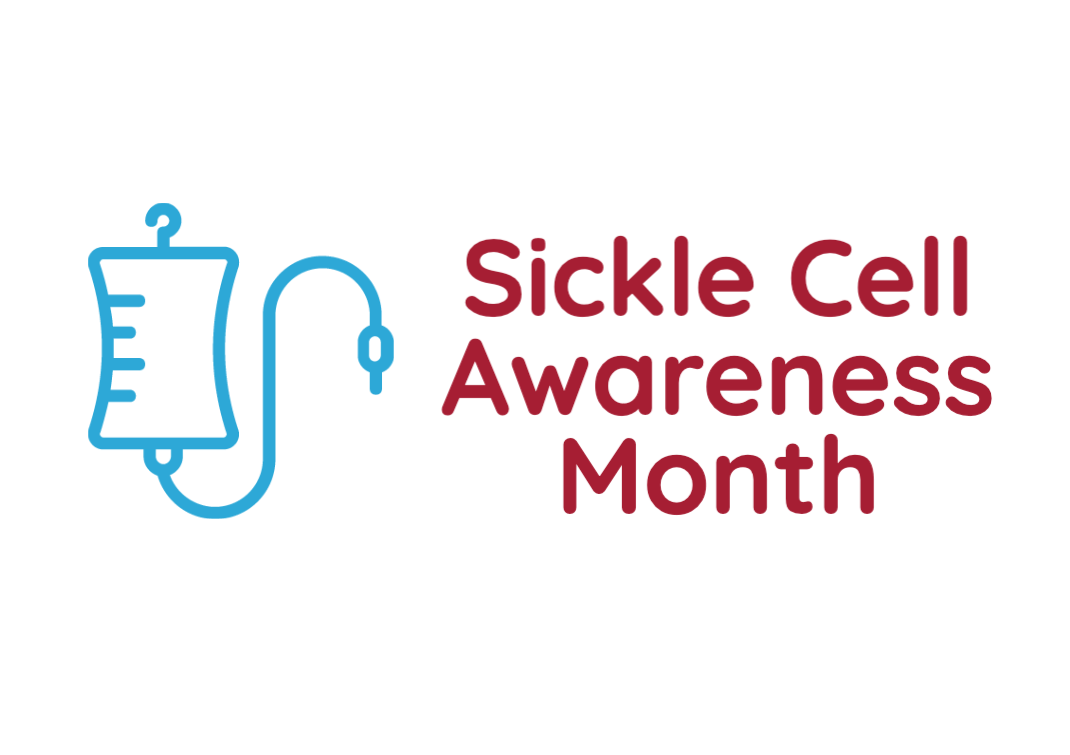Sickle Cell Awareness Month
September 1, 2021

The month of September is aimed at educating and raising awareness about Sickle Cell Disease (SCD), an inherited red blood cell disorder that impacts about 100,000 people in the United States, mainly African Americans. Just like babies inherit traits like eye or hair color, they can also inherit SCD, and symptoms usually show up within the first year, according to the Centers for Disease Control and Prevention (CDC).
Red blood cells are a crucial blood component, carrying oxygen throughout the body through blood vessels. These cells are typically round and flexible. When someone has SCD, the red blood cells are hard, sticky, and sickle-shaped, making it difficult to move through the blood vessels, and can actually block them. This can lead to serious pain and other complications. Sickle cells also don’t last as long, which leads to not enough red cells in the patient.
Often, those living with SCD rely on blood transfusions to manage symptoms. According to the U.S. Food and Drug Administration (FDA), SCD affects 1 in 365 African Americans and 1 in 16,300 Hispanic Americans. This is just one example of why diversity among blood donors is so important. The more closely someone is linked in their genes through a common ancestry, the more likely it is to find a blood transfusion match. Diversification of blood donors can significantly help those with SCD. While blood transfusion can help manage SCD, it’s not a permanent solution. There is only one known cure for SCD: a blood stem cell transplant, which replaces the sickle cells with healthy cells.
The CDC says those living with SCD can live relatively normal lives by following some steps like ensuring quality medical care, keeping healthy, and having a support system.
You can help! Schedule a blood donation today.
Sources:
The Centers for Disease Control and Prevention (CDC)
Be The Match
U.S. Food & Drug Administration (FDA)
National Center for Biotechnology Information, U.S. National Library of Medicine, The American Society of Hematology
The Community Blood Center


